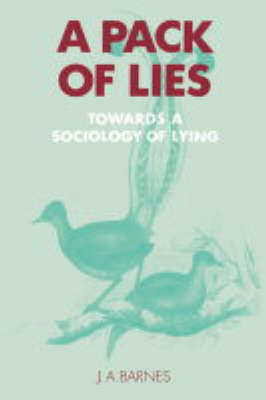Defining lies as statements that are intended to deceive, this book considers the contexts in which people tell lies, how they are detected and sometimes exposed, and the consequences for the liars themselves, their dupes, and the wider society. The author provides examples from a number of cultures with distinctive religious and ethical traditions, and delineates domains where lying is the norm, domains that are ambiguous and the one domain (science) that requires truthtelling. He refers to experimental studies on children that show how, at an early age, they acquire the capactiy to lie and learn when it is appropriate to do so. He reviews how lying has been evaluated by moralists, examines why we do not regard novels as lies and relates the human capacity to lie to deceit among other animal species. He concludes that although there are, in all societies, good pragmatic reasons for not lying all the time, there are also strong reasons for lying some of the time.
- ISBN13 9780521459785
- Publish Date 9 June 1994
- Publish Status Active
- Publish Country GB
- Imprint Cambridge University Press
- Format Paperback (US Trade)
- Pages 216
- Language English
